Essential Elements for Supporting Recovery: Hydration and Nutrition

Recovery from substance abuse is a complex process that requires more than just abstinence. It involves repairing physical and mental health, which hinges significantly on adequate hydration and nutrition. Substance use depletes vital nutrients and causes dehydration, impairing the body's natural detox processes and increasing discomfort during withdrawal. This article explores how tailored hydration and nutritional strategies can facilitate detox, support organ function, improve mental health, and optimize overall recovery outcomes.
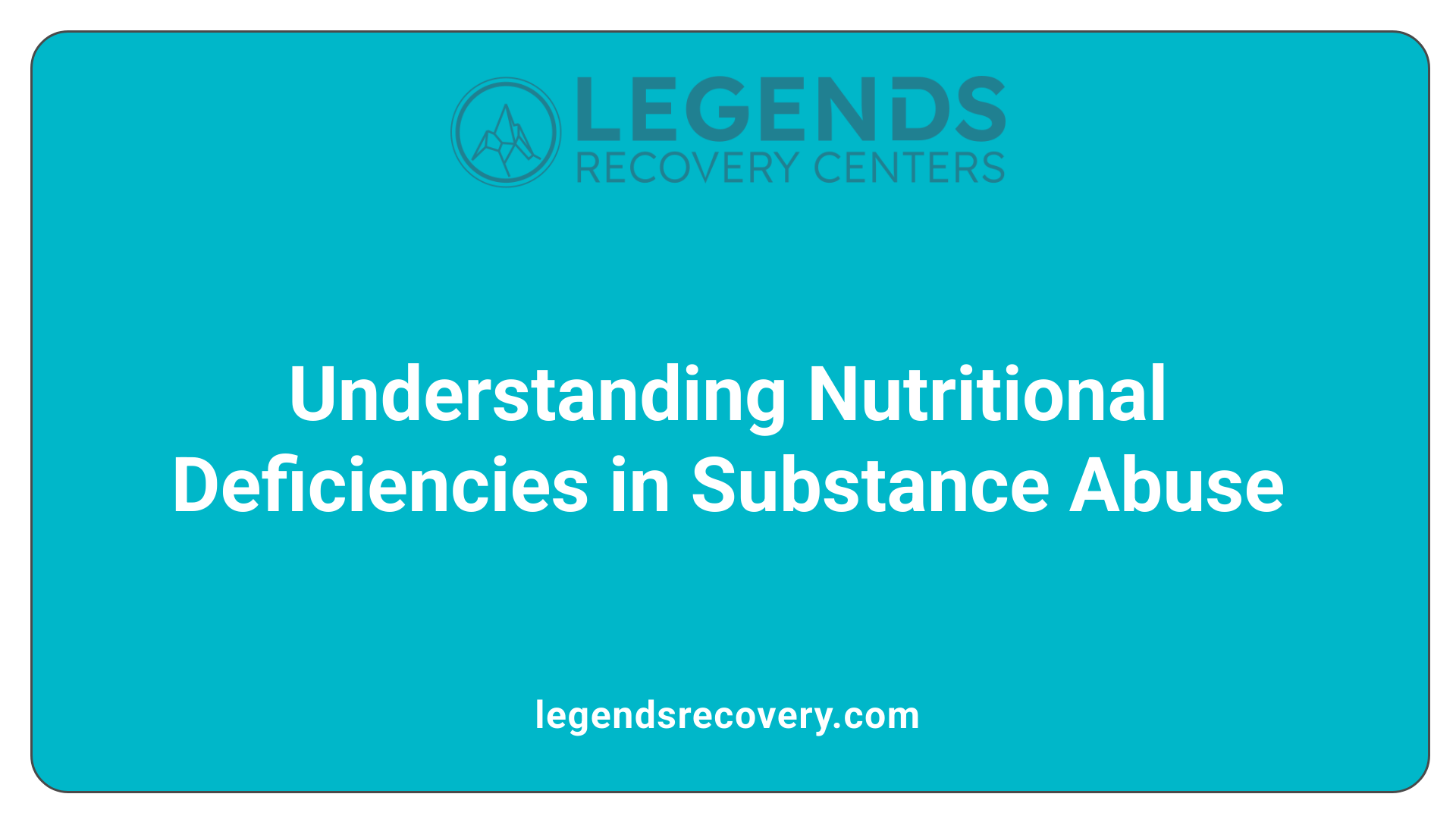 Substance abuse significantly depletes the body's essential nutrients, including vital vitamins and minerals necessary for physical and mental health. Chronic use of substances like alcohol, opioids, and stimulants disrupts normal digestion, absorption, and metabolism, leading to deficiencies that impair organ function and weaken the immune system.
Substance abuse significantly depletes the body's essential nutrients, including vital vitamins and minerals necessary for physical and mental health. Chronic use of substances like alcohol, opioids, and stimulants disrupts normal digestion, absorption, and metabolism, leading to deficiencies that impair organ function and weaken the immune system.
Alcohol, in particular, acts as a diuretic that causes excessive fluid loss and dehydration. This not only hampers the kidneys and liver, which are crucial for detoxification, but also exacerbates withdrawal symptoms such as headaches, fatigue, muscle cramps, and dizziness. Dehydration can further increase health risks like seizures and kidney damage.
Common deficiencies seen in individuals with substance use issues include B vitamins (notably B1, B6, and B12), vitamin C, magnesium, zinc, and amino acids. B vitamins are essential for energy production, brain health, and mood regulation, often becoming severely depleted during active addiction. Magnesium and zinc support nerve and muscle function, aiding in reducing withdrawal-related discomfort, while amino acids are vital for repairing tissues and maintaining neurological health.
Proper hydration plays a key role in recovery by supporting kidney and liver function, flushing out toxins, and maintaining electrolyte balance. Electrolyte loss from vomiting, diarrhea, and sweating during detox can lead to further complications if not managed effectively.
In addressing these issues, nutrition interventions focus on replenishing nutrients through balanced diets rich in fruits, vegetables, lean proteins, complex carbs, and healthy fats. Hydration strategies include consuming plenty of water, electrolyte-rich beverages like coconut water, and water-dense foods such as cucumbers and melons. Professional nutritional support helps tailor these interventions, ensuring that deficiencies are corrected and overall health is restored.
Maintaining optimal nutrition during detox not only facilitates physical healing but also stabilizes mood, reduces cravings, and enhances mental resilience—key elements for successful long-term recovery.
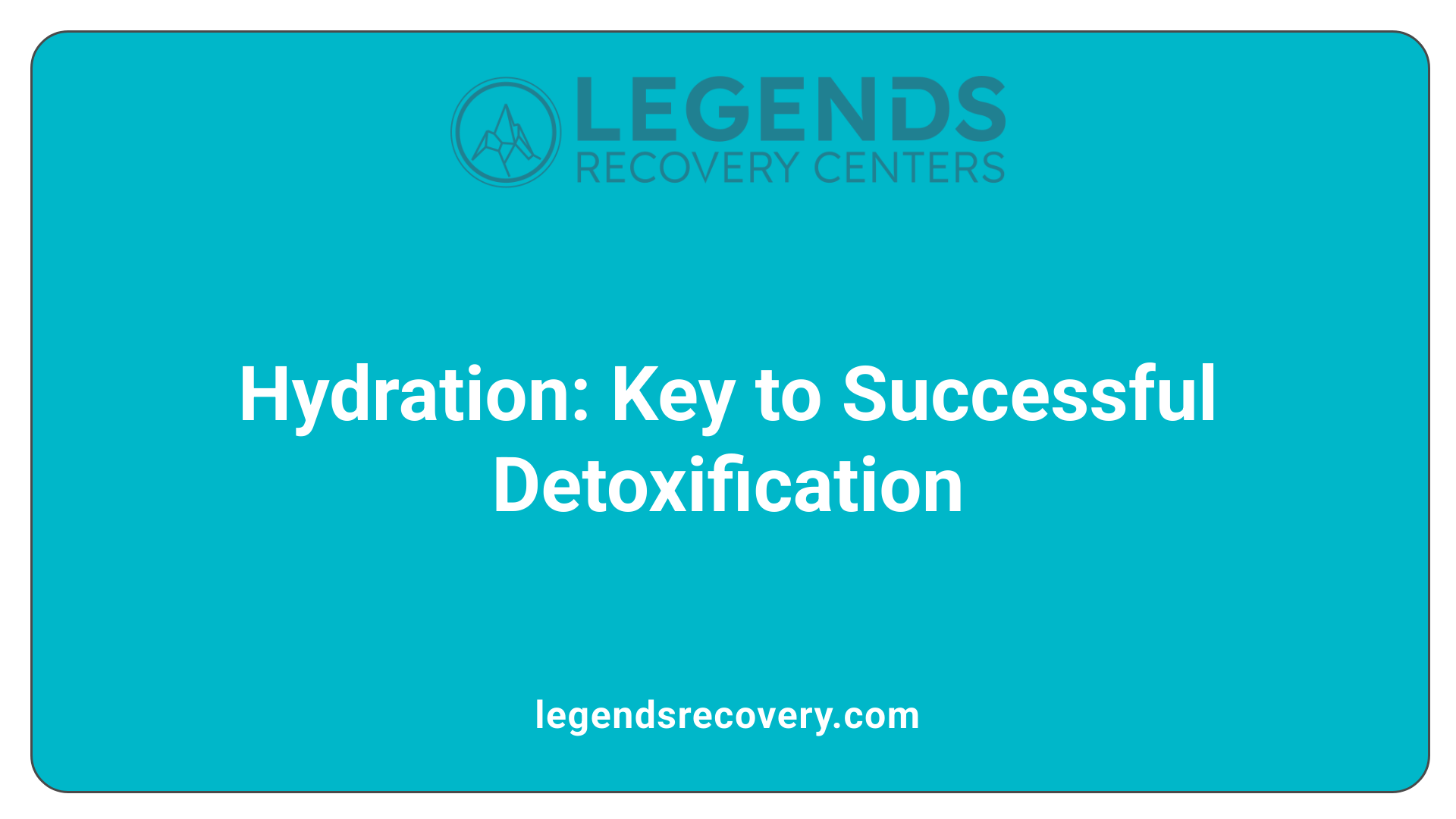
Hydration is a vital component of the detox process, especially during recovery from substance abuse. When individuals consume substances like alcohol and drugs, dehydration often occurs as a result of their diuretic effects, which lead to fluid loss. Adequate water intake helps the body eliminate toxins more efficiently by supporting kidney and liver functions.
During detox, dehydration can intensify withdrawal symptoms such as headaches, fatigue, muscle cramps, and dizziness. These symptoms can hinder progress and make the recovery experience more uncomfortable. By maintaining proper hydration, individuals can alleviate some of these symptoms, aiding in smoother detoxification.
Electrolyte balance is also preserved through good hydration, which is crucial for proper nerve signaling and muscle function. Hydrating foods like watermelons, cucumbers, and oranges contribute to maintaining this balance.
Strategies for staying properly hydrated include drinking water regularly throughout the day, consuming herbal teas or electrolyte-rich beverages such as sports drinks or coconut water, and eating hydrating foods. Monitoring urine color, aiming for a light, straw-like hue, can be an easy way to gauge hydration levels.
In sum, drinking enough fluids not only helps remove toxins more effectively but also supports overall organ health, reduces discomfort, and boosts emotional resilience during recovery. Ensuring proper hydration is one of the simplest yet most impactful steps in successfully navigating detox.
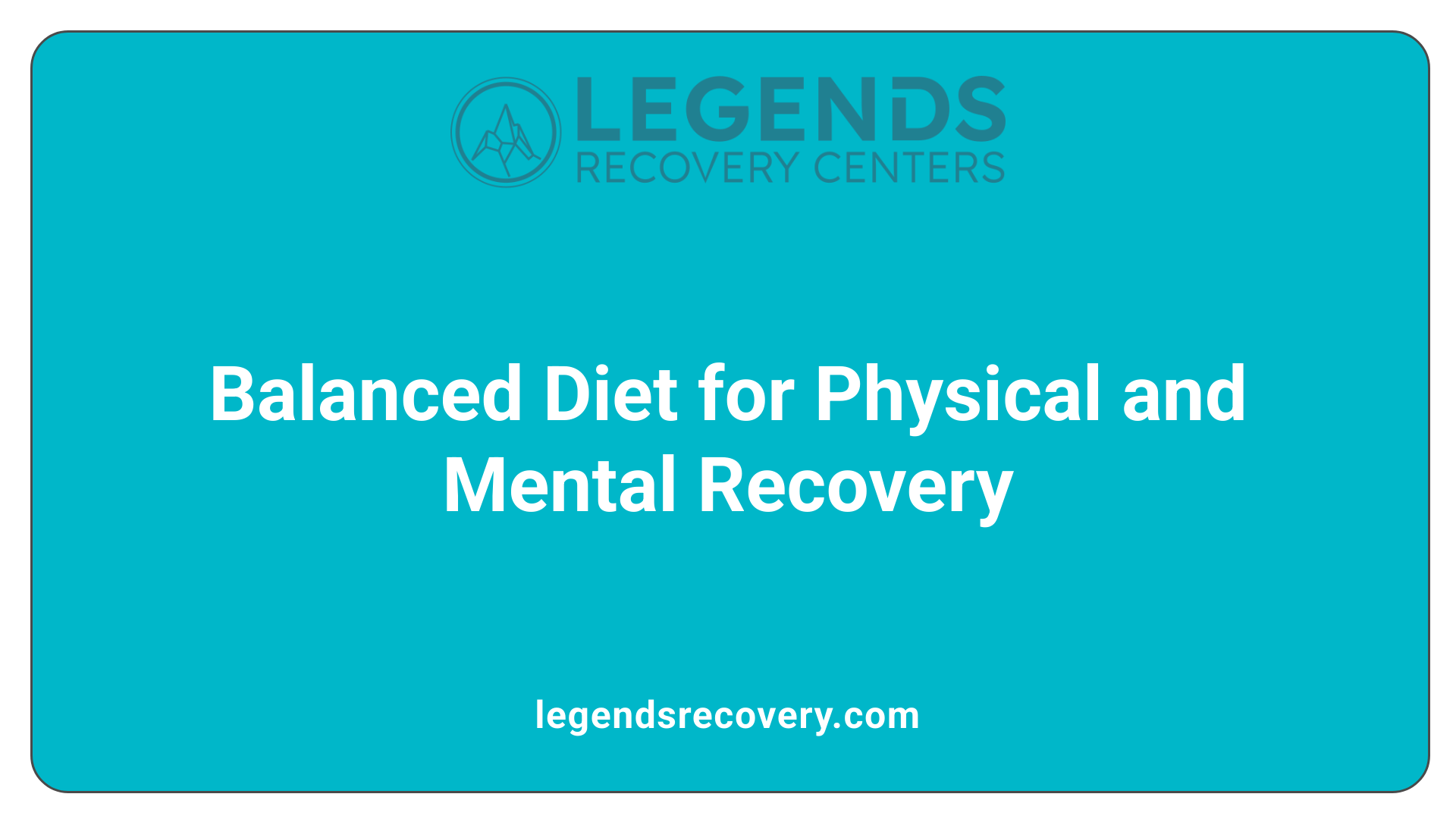
Proper nutrition is a cornerstone of effective addiction recovery. Substance abuse often causes significant damage to the body's organs, disrupts normal metabolic processes, and leads to deficiencies in vital nutrients such as B vitamins, magnesium, zinc, and vitamin D. These nutrients are essential for repairing tissues, supporting immune health, and maintaining neurological functions.
A tailored diet helps replenish nutrients depleted during active substance use, aiding in organ repair, particularly liver and brain health. Additionally, nutrition influences brain chemistry by providing the building blocks for neurotransmitters like serotonin and dopamine, which regulate mood and cravings.
Moreover, a balanced diet can boost mental health, stabilize emotions, and enhance neuroplasticity—the brain's ability to reorganize itself—which is crucial for psychological recovery.
In essence, proper nutrition not only supports the physical repair process but also fortifies mental resilience, helping individuals sustain sobriety and prevent relapse. Using personalized meal plans developed with healthcare professionals ensures that nutritional needs are met, optimizing all aspects of recovery.
Maintaining proper hydration and a nutritious diet during detox is vital for supporting the body's recovery. Adequate hydration, about 1.5 to 2 liters of fluids daily, helps the kidneys and liver process and eliminate toxins effectively. Drinking water, herbal teas, and electrolyte-rich beverages replenishes lost minerals and prevents dehydration, which can cause headaches, fatigue, and muscle cramps.
A balanced diet provides essential vitamins, minerals, and nutrients necessary for optimal body function. Consuming a variety of foods, including fruits, vegetables, lean proteins, whole grains, and healthy fats, boosts immunity, repairs tissues, and stabilizes mood and energy levels. This nutritional support enhances the body's natural healing process and can reduce withdrawal symptoms like irritability and cravings.
Small dietary changes, such as choosing nutrient-dense foods and avoiding processed, sugary, and caffeinated drinks, can make a significant difference. Staying active and utilizing resources like the NHS Eatwell Guide can help create sustainable healthy eating habits. Proper nutrition and hydration not only support physical repair but also aid in mental clarity, emotional stability, and motivation—crucial aspects during the challenging detoxification phase.
Certain nutrients play especially important roles in detox and supporting brain health. Vitamins B and C, along with minerals like magnesium and zinc, are foundational in this process.
Vitamins B and C, magnesium, zinc:
Omega-3 fatty acids, antioxidants, amino acids:
These nutrients contribute to neuroplasticity—the brain’s ability to adapt and recover—by promoting neurotransmitter balance, reducing inflammation, and supporting cellular regeneration.
Proper intake of these key nutrients enhances neuroplasticity, which is crucial during recovery. For example, B vitamins aid in synthesizing neurotransmitters like serotonin and dopamine, improving mood and cognitive function.
Omega-3 fatty acids bolster brain cell membrane integrity, facilitating communication between neurons and aiding in mental recovery. Antioxidants protect brain cells from oxidative stress caused by residual toxins and free radicals. Magnesium and zinc help regulate nerve signaling and reduce inflammation, which are critical for restoring healthy brain function.
Together, these nutrients not only support detoxification by aiding liver and cellular cleansing processes but also reinforce brain resilience, improve mood, and decrease cravings. Incorporating a variety of nutrient-rich foods and supplements, if recommended by health professionals, can significantly boost recovery efforts by nourishing the brain and body during this critical time.
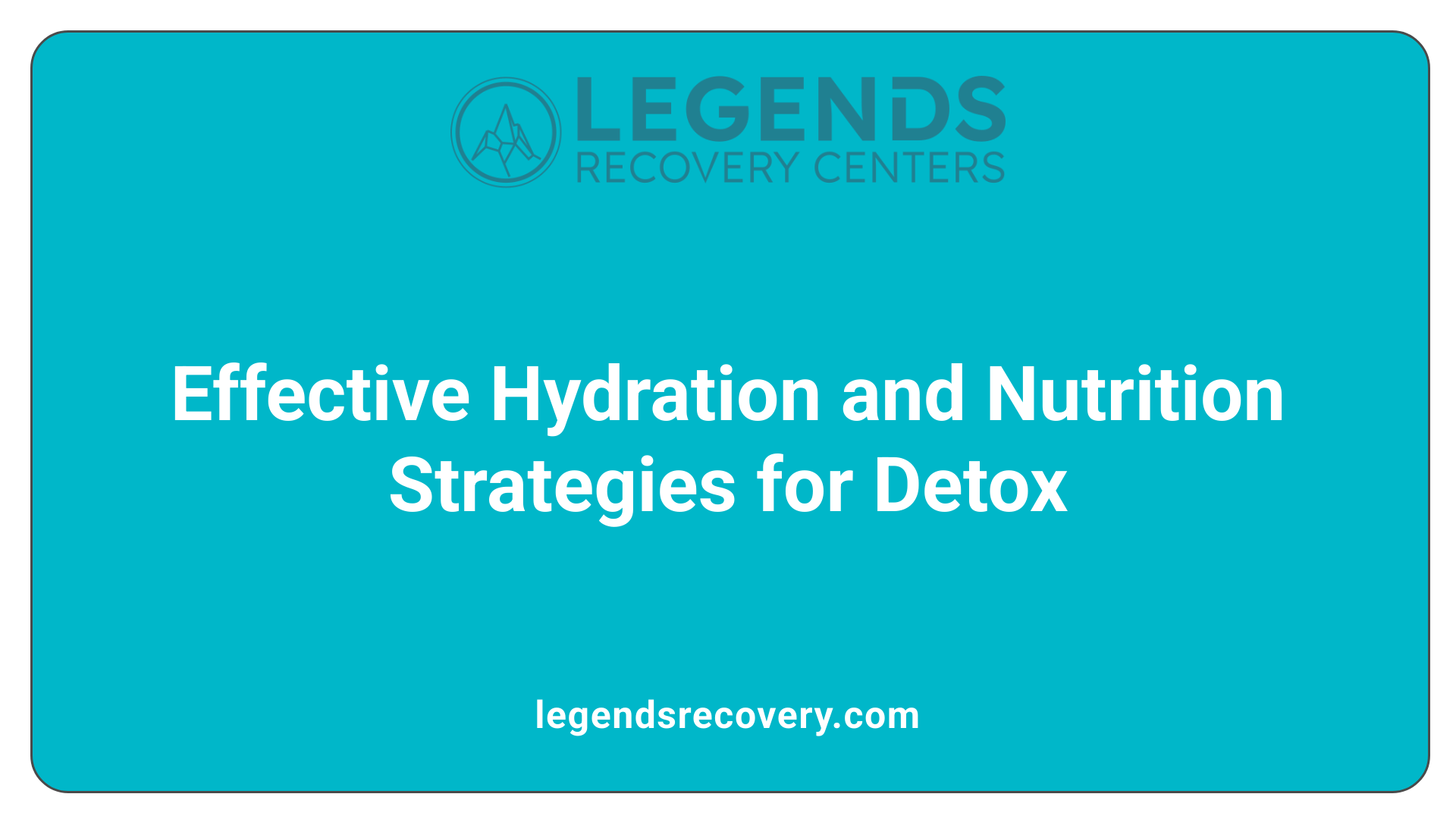
Maintaining proper hydration and a nutritious diet during detox is essential to support the body's healing process. Substance abuse often leads to nutrient depletion and dehydration, which can worsen withdrawal symptoms and delay recovery. Adequate water intake flushes out toxins, keeps organs like the kidneys and liver functioning efficiently, and reduces symptoms such as headaches, fatigue, and muscle cramps.
Eating a balanced diet rich in fruits, vegetables, lean proteins, and complex carbohydrates helps replenish vital vitamins and minerals lost during substance use. This not only boosts the immune system but also stabilizes mood and energy levels, making withdrawal more manageable.
Small, consistent dietary changes combined with staying physically active can foster healthier habits. Resources like the NHS Eatwell Guide provide helpful guidance for developing a sustainable nutrition plan that supports long-term sobriety and well-being.
In summary, proper hydration and nutrition are cornerstones of a successful detox, helping to reduce cravings, support mental clarity, and improve overall health during recovery.
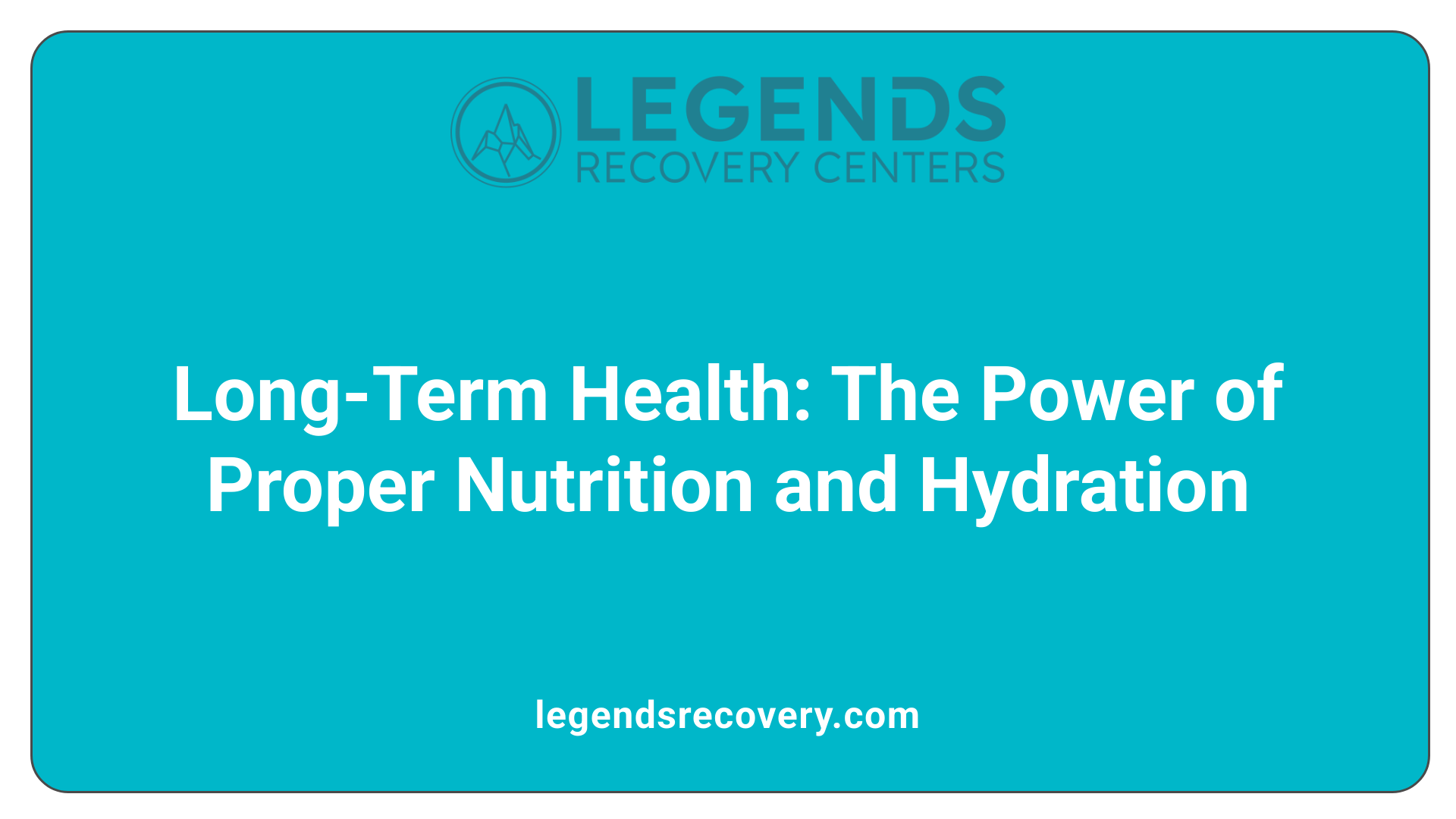
Proper nutrition plays a vital role in maintaining long-term sobriety. Substance abuse often leaves a trail of physical damage, including deficiencies in essential vitamins like B vitamins, vitamin C, and minerals such as zinc and magnesium. These nutrients are foundational for rebuilding organ health, supporting the immune system, and restoring metabolic balance.
Adequate dietary intake helps repair tissues, particularly in the brain and nervous system, which are often affected by substance use. For example, B vitamins are crucial for energy production and neurotransmitter synthesis, both of which influence mood and mental clarity. Replenishing these nutrients can stabilize emotional health and reduce the risk of relapse triggered by mental health struggles.
Nutrition also influences neuroplasticity—the brain's ability to reorganize and form new connections—that is essential for long-term recovery. A diet rich in antioxidants, omega-3 fatty acids, and vitamins supports brain health, improves memory, and enhances cognitive function.
Furthermore, a balanced diet fosters resilience against cravings and stress, two common relapse triggers. Maintaining good nutrition and hydration consistently decreases the likelihood of mood swings, irritability, and physical fatigue, all of which can compromise sobriety.
Long-term sobriety benefits significantly from a sustained focus on balanced eating and hydration. Proper hydration ensures the elimination of toxins, supports organ function, and stabilizes mood. Nutrients like magnesium and zinc help regulate nerve and muscle function and reduce withdrawal-related discomfort.
Eating regular, nutrient-rich meals sustains energy levels, improves sleep, and reduces emotional stress. Foods high in fiber, lean proteins, fruits, vegetables, and healthy fats nurture bodily systems vital for health. Hydrating foods such as watermelon, cucumbers, and oranges are beneficial, especially during recovery.
Healthy eating habits also modulate gut health, which deeply influences mental health through the gut-brain axis. A resilient gut microbiome can promote emotional stability, reduce anxiety, and support cognitive clarity.
Neuroplasticity—brain's ability to adapt and form new pathways—is essential to overcoming the neurological damage caused by substance dependence. Nutrients such as omega-3 fatty acids, antioxidants, and B vitamins support brain repair and improve cognitive resilience.
A diet emphasizing anti-inflammatory foods like fatty fish, berries, and leafy greens can reduce internal inflammation and protect neural tissues. This not only aids in cognitive recovery but also diminishes the emotional disturbances linked to withdrawal and triggers.
Maintaining proper hydration is equally critical, as water helps in the removal of toxins and nutrients via the kidneys and supports brain function. Electrolyte-rich beverages like coconut water replenish minerals lost during detox, safeguarding nerve and muscle function.
Developing consistent, healthy eating routines is fundamental for sustaining sobriety. This involves planning balanced meals that include lean proteins, complex carbohydrates, and a variety of colorful fruits and vegetables.
Education about nutrition and ongoing counseling empower individuals to make informed choices, preventing nutritional deficiencies and promoting mental well-being. Avoiding processed foods, excess sugars, and caffeine reduces cravings and stabilizes blood sugar levels.
Creating a supportive environment through personalized meal plans and nutritional support, often guided by healthcare professionals, helps reinforce positive habits. Incorporating physical activity alongside good nutrition further boosts mood, strengthens immune function, and enhances overall resilience.
In sum, nourishing the body effectively during and after detox fosters not only physical healing but also mental clarity. This balanced approach is crucial in building a strong foundation for lasting sobriety and a healthier, more resilient life.
| Aspect | Benefits | Supporting Details |
|---|---|---|
| Mental and Physical Well-being | Reduces cravings, stabilizes mood, enhances energy | Nutrients like B vitamins, magnesium, antioxidants |
| Brain Health and Neuroplasticity | Supports cognitive recovery, memory, and focus | Omega-3 fatty acids, antioxidants, proper hydration |
| Relapse Prevention | Minimizes triggers, boosts resilience | Balanced diet, hydration, stress management |
| Long-Term Healthy Habits | Builds sustainable recovery routines | Meal planning, education, professional support |
For long-term recovery, sustained attention to nutrition and hydration is indispensable. They serve as the pillars supporting both mental and physical health, thereby promoting enduring sobriety and well-being.
Maintaining proper hydration and a balanced diet during detox and recovery is essential for physical healing, mental stability, and long-term sobriety. These strategies support the body's natural detox systems, replenish depleted nutrients, and promote optimal organ function. Tailored nutritional plans, combined with adequate hydration, help reduce withdrawal symptoms, ease physical discomforts, and improve mood and cognitive function. By focusing on nourishing foods rich in essential vitamins, minerals, and antioxidants, individuals enhance their resilience and support neuroplasticity, which is vital for brain recovery and relapse prevention. Healthcare professionals and nutritionists play a crucial role in developing personalized approaches that empower individuals to sustain healthy habits beyond detox, ensuring a stronger foundation for lasting recovery.